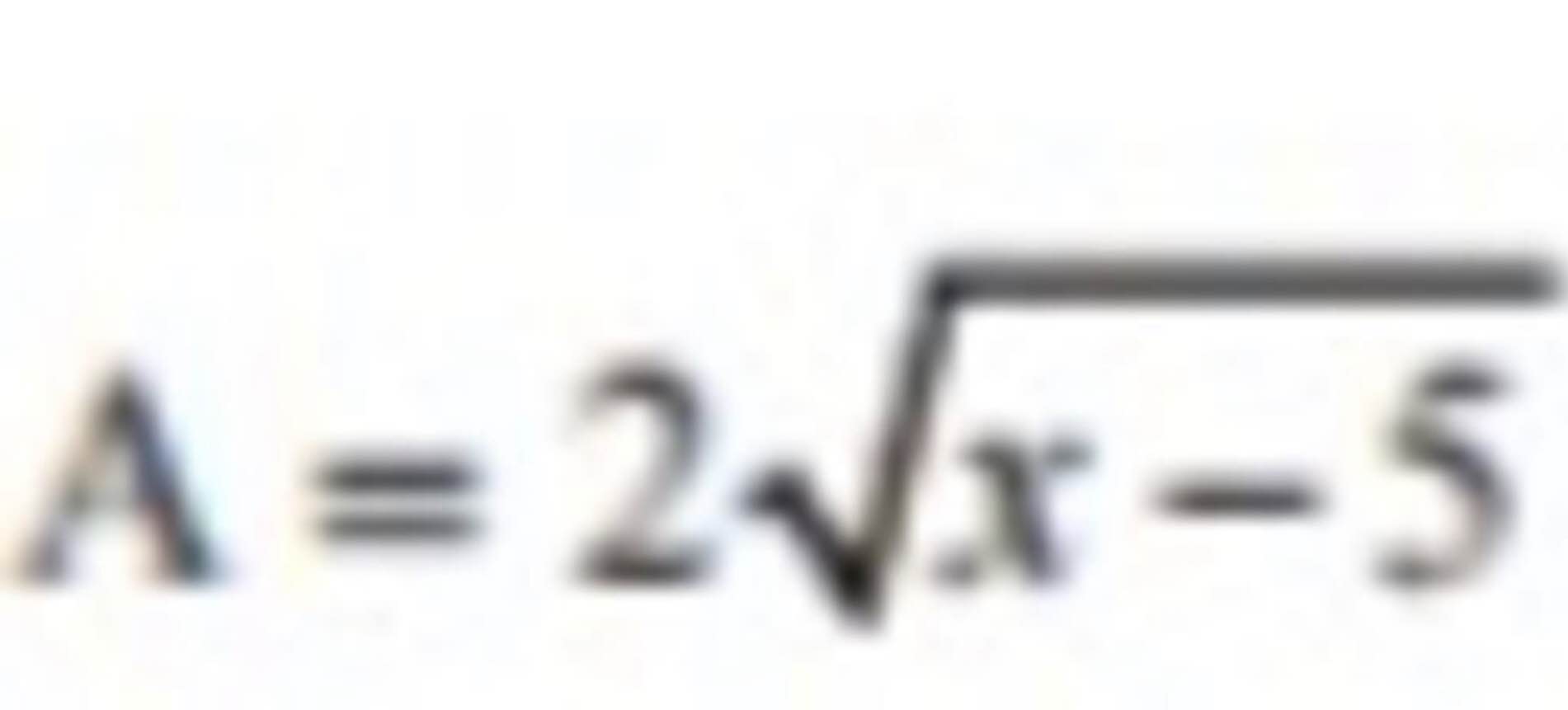
Hãy nhập câu hỏi của bạn vào đây, nếu là tài khoản VIP, bạn sẽ được ưu tiên trả lời.


1) a) Căn thức có nghĩa \(\Leftrightarrow4-2x\ge0\Leftrightarrow2x\le4\Leftrightarrow x\le2\)
b) Thay x = 2 vào biểu thức A, ta được: \(A=\sqrt{4-2.2}=\sqrt{0}=0\)
Thay x = 0 vào biểu thức A, ta được: \(A=\sqrt{4-2.0}=\sqrt{4}=2\)
Thay x = 1 vào biểu thức A, ta được: \(A=\sqrt{4-2.1}=\sqrt{2}\)
Thay x = -6 vào biểu thức A, ta được: \(A=\sqrt{4-2.\left(-6\right)}=\sqrt{16}=4\)
Thay x = -10 vào biểu thức A, ta được: \(A=\sqrt{4-2.\left(-10\right)}=\sqrt{24}=2\sqrt{6}\)
c) \(A=0\Leftrightarrow\sqrt{4-2x}=0\Leftrightarrow4-2x=0\Leftrightarrow x=2\)
\(A=5\Leftrightarrow\sqrt{4-2x}=5\Leftrightarrow4-2x=25\Leftrightarrow x=\frac{-21}{2}\)
\(A=10\Leftrightarrow\sqrt{4-2x}=10\Leftrightarrow4-2x=100\Leftrightarrow x=-48\)

Trả lời:
a. rút gọn biểu thức A.B:
A= 3\(\sqrt{7}\)-2\(\sqrt{7}\)+5\(\sqrt{7}\)-3=-3
B= \(\sqrt{x}\)-1 + \(\sqrt{x}\)=2\(\sqrt{x}\)-1
b. Tìm x để A=3B
ta có:
A=-3= 3 (2\(\sqrt{x}\)-1)
=> -3= 6\(\sqrt{x}\)-3
=> \(\sqrt{x}\)=0
Vậy x=0 thì A=3B


Đáp án là B
15 - 6 6 + 15 + 6 6
= 9 - 6 6 + 6 + 9 + 6 6 + 6 = 3 - 6 2 + 3 + 6 2
= |3 - 6 | + |3 + 6 |
= 3 - 6 + 3 + 6
= 6


\(\frac{1}{2+\sqrt{3}}+\frac{1}{2-\sqrt{3}}=\frac{2-\sqrt{3}}{4-3}+\frac{2+\sqrt{3}}{4-3}=2-\sqrt{3}+2+\sqrt{3}=4\)